第4章 Introduction(4)
But pure reason is a sphere so separate and self- contained, that we cannot touch a part without affecting all the rest. We can therefore do nothing without first determining the position; of each part, and its relation to the rest; for, as our judgment cannot be corrected by anything without, the validity and use of every part depends upon the relation in which it stands to all the rest within the domain of reason. So in the structure of an organized body, the end of each member can only be deduced from the full conception of the whole. It may, then, be said of such a critique that it is never trustworthy except it be perfectly complete, down to the smallest elements of pure reason. In the sphere of this faculty you can determine either everything or nothing. But although a mere sketch, preceding the Critique of Pure Reason, would be unintelligible, unreliable, and useless, it is all the more useful as a sequel. For so we are able to grasp the whole, to examine in detail the chief points of importance in the science, and to improve in many respects our exposition, as compared with the first execution of the work. After the completion of the work I offer here such a plan which is sketched out after an analytical method, while the work itself had to be executed in the synthetical style, in order that the science may present all its articulations, as the structure of a peculiar cognitive faculty, in their natural combination. But should any reader find this plan, which I publish as the Prolegomena to any future Metaphysics, still obscure, let him consider that not every one is bound to study Metaphysics, that many minds will succeed very well, in the exact and even in deep sciences, more closely allied to practical experience, 4 while they cannot succeed in investigations dealing exclusively with abstract concepts. In such cases men should apply their talents to other subjects. But he who undertakes to judge, or still more, to construct, a system of Metaphysics, must satisfy the demands here made, either by adopting my solution, or by thoroughly refuting it, and substituting another. To evade it is impossible. In conclusion, let it be remembered that this much-abused obscurity (frequently serving as a mere pretext under which people hide their own indolence or dullness) has its uses, since all who in other sciences observe a judicious silence, speak authoritatively in metaphysics and make bold decisions, because their ignorance is not here contrasted with the knowledge of others.
Yet it does contrast with sound critical principles, which we may therefore commend in the words of Virgil: " Ignavum, fucos, pecus a praesepibus arcent. "
"Bees are defending their hives against drones, those indolent creatures."